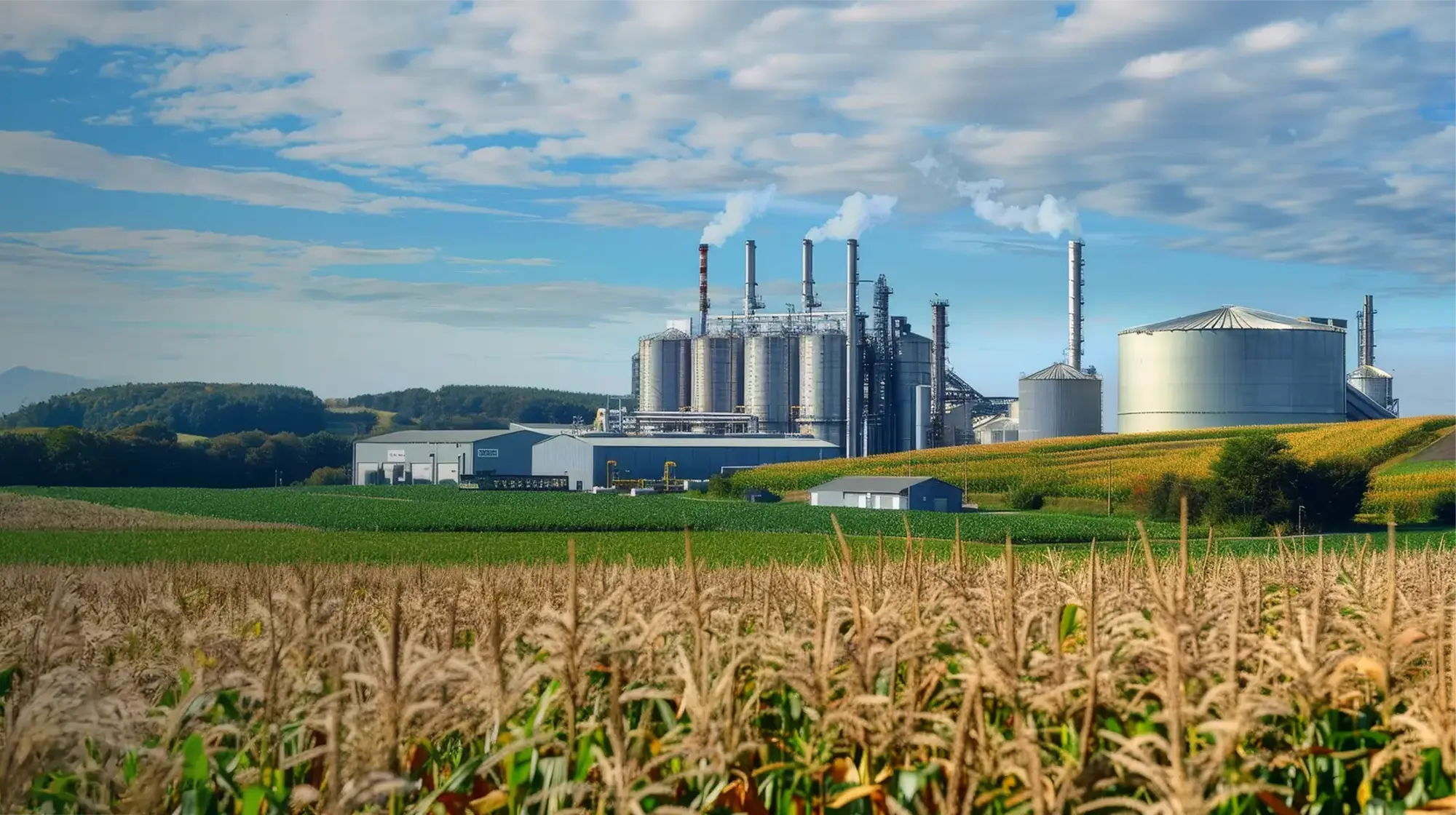Reports related to this article:
Project(s): View 5 related projects in PECWeb
Plant(s): View 5 related plants in PECWeb
Released February 28, 2024 | CORDOBA, ARGENTINA
en
Researched by Industrial Info Resources (Sugar Land, Texas)--On the sidelines of the UN COP 28 summit held in Dubai at the end of last year, Brazilian sugarcane industry association Unica and foreign trade entity ApexBrasil signed a deal to invest R$19.5 million (US$3.9 million) to position ethanol as a key solution in decarbonizing transportation globally and help countries reach net-zero emissions by 2050. This comes as Brazil continues to consolidate itself as the world's second-largest ethanol producer, having reached 31.2 billion liters in the 2022-23 harvest.
Despite the growing interest in ethanol as an alternative fuel brought on by the energy transition, a slowdown in competitiveness within the sugarcane-based ethanol sector in Brazil has led to an uptick in corn-ethanol investment. There are many benefits to corn ethanol production, as it meets growing domestic needs for light fuel, can be cultivated and harvested much faster than sugarcane, can be used as a raw material at flex plants during the sugarcane off-season and also produces a variety of marketable byproducts, including corn oil for human consumption; dried distillers' grains (DDG), distillers' dried grains with solubles (DDGS) and wet distillers' grains with solubles (WDGS) for animal feed; biogas production; carbon dioxide (CO2) recovery for use in the pharmaceutical and beverages industries.
In addition, capital expenditures for corn ethanol production tend to be lower than that of sugarcane-based projects.
While most of corn-based ethanol production in Brazil up until now has been centered in the states of Mato Grosso (69%) and Mato Grosso do Sul (19%), several companies in the south of the country have started to implement the construction or planning of grassroot cereal-ethanol plants. Industrial Info is tracking notable investments, such as Be8's R$316 million (US$63.6 million) project in Passo Fundo (Rio Grande do Sul) to process up to 750 tons per day of wheat, corn, triticale, rice and sorghum in order to produce over 111 million liters of ethanol per year. Similar investments marking this trend in Brazil's south include CB Bioenergia's (Rio Grande do Sul) wheat-based grassroot facility in Santiago (Rio Grande do Sul); Agro Bio Energia´s R$464 million (US$93.11 million) corn-based ethanol investment in Julio de Castilhos (Rio Grande do Sul); Coamo´s (Parana) notable corn ethanol project in Campo Mourao (Parana); as well as Cotrijal's plant in Nao-Me-Toque (Rio Grande do Sul).
Subscribers to Industrial Info's Global Market Intelligence (GMI) Alternative Fuel Project and Plant database can click here for a list of related project reports and here for the related plant profiles.
Industrial Info Resources (IIR) is the leading provider of industrial market intelligence. Since 1983, IIR has provided comprehensive research, news and analysis on the industrial process, manufacturing and energy related industries. IIR's Global Market Intelligence (GMI) helps companies identify and pursue trends across multiple markets with access to real, qualified and validated plant and project opportunities. Across the world, IIR is tracking over 200,000 current and future projects worth $17.8 Trillion (USD).
Despite the growing interest in ethanol as an alternative fuel brought on by the energy transition, a slowdown in competitiveness within the sugarcane-based ethanol sector in Brazil has led to an uptick in corn-ethanol investment. There are many benefits to corn ethanol production, as it meets growing domestic needs for light fuel, can be cultivated and harvested much faster than sugarcane, can be used as a raw material at flex plants during the sugarcane off-season and also produces a variety of marketable byproducts, including corn oil for human consumption; dried distillers' grains (DDG), distillers' dried grains with solubles (DDGS) and wet distillers' grains with solubles (WDGS) for animal feed; biogas production; carbon dioxide (CO2) recovery for use in the pharmaceutical and beverages industries.
In addition, capital expenditures for corn ethanol production tend to be lower than that of sugarcane-based projects.
While most of corn-based ethanol production in Brazil up until now has been centered in the states of Mato Grosso (69%) and Mato Grosso do Sul (19%), several companies in the south of the country have started to implement the construction or planning of grassroot cereal-ethanol plants. Industrial Info is tracking notable investments, such as Be8's R$316 million (US$63.6 million) project in Passo Fundo (Rio Grande do Sul) to process up to 750 tons per day of wheat, corn, triticale, rice and sorghum in order to produce over 111 million liters of ethanol per year. Similar investments marking this trend in Brazil's south include CB Bioenergia's (Rio Grande do Sul) wheat-based grassroot facility in Santiago (Rio Grande do Sul); Agro Bio Energia´s R$464 million (US$93.11 million) corn-based ethanol investment in Julio de Castilhos (Rio Grande do Sul); Coamo´s (Parana) notable corn ethanol project in Campo Mourao (Parana); as well as Cotrijal's plant in Nao-Me-Toque (Rio Grande do Sul).
Subscribers to Industrial Info's Global Market Intelligence (GMI) Alternative Fuel Project and Plant database can click here for a list of related project reports and here for the related plant profiles.
Industrial Info Resources (IIR) is the leading provider of industrial market intelligence. Since 1983, IIR has provided comprehensive research, news and analysis on the industrial process, manufacturing and energy related industries. IIR's Global Market Intelligence (GMI) helps companies identify and pursue trends across multiple markets with access to real, qualified and validated plant and project opportunities. Across the world, IIR is tracking over 200,000 current and future projects worth $17.8 Trillion (USD).


